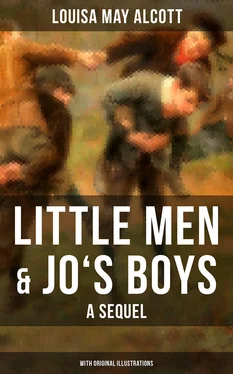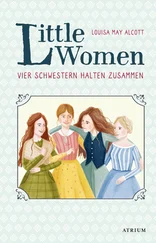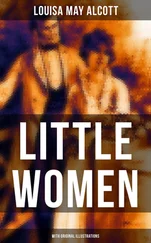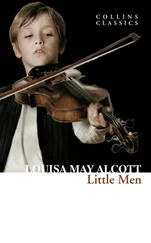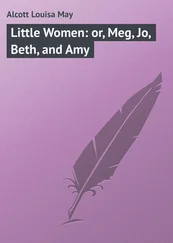"And you hit him? dear old Father Bhaer? By thunder, I'd just like to see you do it now!" said Ned, collaring Emil in a fit of righteous wrath.
"It was ever so long ago. I'd rather have my head cut off than do it now," and Emil mildly laid Ned on his back instead of cuffing him, as he would have felt it his duty to do on any less solemn occasion.
"How could you?" said Demi, appalled at the idea.
"I was hopping mad at the time, and thought I shouldn't mind a bit, rather like it perhaps. But when I'd hit uncle one good crack, everything he had ever done for me came into my head all at once somehow, and I couldn't go on. No sir! If he'd laid me down and walked on me, I wouldn't have minded, I felt so mean," and Emil gave himself a good thump in the chest to express his sense of remorse for the past.
"Nat's crying like anything, and feels no end sorry, so don't let's say a word about it; will we?" said tender-hearted Tommy.
"Of course we won't, but it's awful to tell lies," and Demi looked as if he found the awfulness much increased when the punishment fell not upon the sinner, but his best Uncle Fritz.
"Suppose we all clear out, so Nat can cut upstairs if he wants to," proposed Franz, and led the way to the barn, their refuge in troublous times.
Nat did not come to dinner, but Mrs. Jo took some up to him, and said a tender word, which did him good, though he could not look at her. By and by the lads playing outside heard the violin, and said among themselves: "He's all right now." He was all right, but felt shy about going down, till opening his door to slip away into the woods, he found Daisy sitting on the stairs with neither work nor doll, only her little handkerchief in her hand, as if she had been mourning for her captive friend.
"I'm going to walk; want to come?" asked Nat, trying to look as if nothing was the matter, yet feeling very grateful for her silent sympathy, because he fancied everyone must look upon him as a wretch.
"Oh yes!" and Daisy ran for her hat, proud to be chosen as a companion by one of the big boys.
The others saw them go, but no one followed, for boys have a great deal more delicacy than they get credit for, and the lads instinctively felt that, when in disgrace, gentle little Daisy was their most congenial friend.
The walk did Nat good, and he came home quieter than usual, but looking cheerful again, and hung all over with daisy-chains made by his little playmate while he lay on the grass and told her stories.
No one said a word about the scene of the morning, but its effect was all the more lasting for that reason, perhaps. Nat tried his very best, and found much help, not only from the earnest little prayers he prayed to his Friend in heaven, but also in the patient care of the earthly friend whose kind hand he never touched without remembering that it had willingly borne pain for his sake.

Table of Contents
"What's the matter, Daisy?"
"The boys won't let me play with them."
"Why not?"
"They say girls can't play football."
"They can, for I've done it!" and Mrs. Bhaer laughed at the remembrance of certain youthful frolics.
"I know I can play; Demi and I used to, and have nice times, but he won't let me now because the other boys laugh at him," and Daisy looked deeply grieved at her brother's hardness of heart.
"On the whole, I think he is right, deary. It's all very well when you two are alone, but it is too rough a game for you with a dozen boys; so I'd find some nice little play for myself."
"I'm tired of playing alone!" and Daisy's tone was very mournful.
"I'll play with you by and by, but just now I must fly about and get things ready for a trip into town. You shall go with me and see mamma, and if you like you can stay with her."
"I should like to go and see her and Baby Josy, but I'd rather come back, please. Demi would miss me, and I love to be here, Aunty."
"You can't get on without your Demi, can you?" and Aunt Jo looked as if she quite understood the love of the little girl for her only brother.
"'Course I can't; we're twins, and so we love each other more than other people," answered Daisy, with a brightening face, for she considered being a twin one of the highest honors she could ever receive.
"Now, what will you do with your little self while I fly around?" asked Mrs. Bhaer, who was whisking piles of linen into a wardrobe with great rapidity.
"I don't know, I'm tired of dolls and things; I wish you'd make up a new play for me, Aunty Jo," said Daisy, swinging listlessly on the door.
"I shall have to think of a brand new one, and it will take me some time; so suppose you go down and see what Asia has got for your lunch," suggested Mrs. Bhaer, thinking that would be a good way in which to dispose of the little hindrance for a time.
"Yes, I think I'd like that, if she isn't cross," and Daisy slowly departed to the kitchen, where Asia, the black cook, reigned undisturbed.
In five minutes, Daisy was back again, with a wide-awake face, a bit of dough in her hand and a dab of flour on her little nose.
"Oh aunty! Please could I go and make gingersnaps and things? Asia isn't cross, and she says I may, and it would be such fun, please do," cried Daisy, all in one breath.
"Just the thing, go and welcome, make what you like, and stay as long as you please," answered Mrs. Bhaer, much relieved, for sometimes the one little girl was harder to amuse than the dozen boys.
Daisy ran off, and while she worked, Aunt Jo racked her brain for a new play. All of a sudden she seemed to have an idea, for she smiled to herself, slammed the doors of the wardrobe, and walked briskly away, saying, "I'll do it, if it's a possible thing!"
What it was no one found out that day, but Aunt Jo's eyes twinkled so when she told Daisy she had thought of a new play, and was going to buy it, that Daisy was much excited and asked questions all the way into town, without getting answers that told her anything. She was left at home to play with the new baby, and delight her mother's eyes, while Aunt Jo went off shopping. When she came back with all sorts of queer parcels in corners of the carry-all, Daisy was so full of curiosity that she wanted to go back to Plumfield at once. But her aunt would not be hurried, and made a long call in mamma's room, sitting on the floor with baby in her lap, making Mrs. Brooke laugh at the pranks of the boys, and all sorts of droll nonsense.
How her aunt told the secret Daisy could not imagine, but her mother evidently knew it, for she said, as she tied on the little bonnet and kissed the rosy little face inside, "Be a good child, my Daisy, and learn the nice new play aunty has got for you. It's a most useful and interesting one, and it is very kind of her to play it with you, because she does not like it very well herself."
This last speech made the two ladies laugh heartily, and increased Daisy's bewilderment. As they drove away something rattled in the back of the carriage.
"What's that?" asked Daisy, pricking up her ears.
"The new play," answered Mrs. Jo, solemnly.
"What is it made of?" cried Daisy.
"Iron, tin, wood, brass, sugar, salt, coal, and a hundred other things."
"How strange! What color is it?"
"All sorts of colors."
"Is it large?"
"Part of it is, and a part isn't."
"Did I ever see one?"
"Ever so many, but never one so nice as this."
"Oh! what can it be? I can't wait. When shall I see it?" and Daisy bounced up and down with impatience.
"To-morrow morning, after lessons."
Читать дальше
